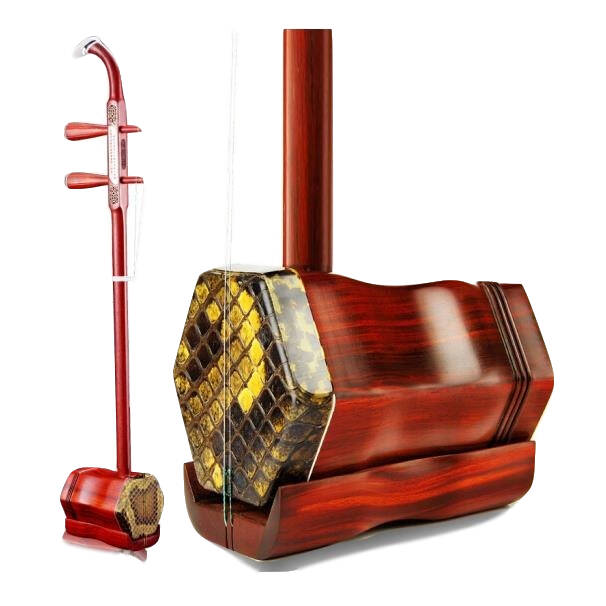Erhu overview
 Erhu (Pinyin: Erhu) originated in the Tang Dynasty, called "Xiqin", and has a history of more than a thousand years. It is a traditional Chinese stringed instrument. Erhu, or Erxian Huqin, also known as "Nanhu" and "Omzi", is one of the main bowed and stringed instruments (wiping strings) in the Chinese national musical instrument family.
Erhu (Pinyin: Erhu) originated in the Tang Dynasty, called "Xiqin", and has a history of more than a thousand years. It is a traditional Chinese stringed instrument. Erhu, or Erxian Huqin, also known as "Nanhu" and "Omzi", is one of the main bowed and stringed instruments (wiping strings) in the Chinese national musical instrument family.Traditionally, there are two strings. The modern erhu is tuned with a pure fifth, which belongs to the middle and high range instruments among the huqin. Now each locality has independently developed bowed and stringed instruments of different shapes, such as gaohu, jinghu, banhu, erxian, and trumpet strings, according to the required conditions. In order to meet the needs of the symphony of Chinese music, according to the erhu system, Zhonghu and so on were also invented.
Erhu famous songs include "Erquan Reflecting the Moon", "Good Night", "Listening to the Pine", "Horse Racing", "The Grapes Are Ripe" and so on.
China is the main producer of erhu, with Shanghai, Beijing and Suzhou the most frequent. The timbre of erhu produced in different places is different and different: traditionally, the erhu produced in Shanghai has a softer timbre; the erhu produced in Beijing has a higher timbre; the erhu produced in Suzhou has a blend of the characteristics of Shanghai and Beijing.
Luthiers usually use wood to make erhus, such as mahogany, small-leaf rosewood, ebony, wenge, blood sandalwood, big-leaf red sandalwood, African safflower pear, African red sandalwood, etc. There are also luthiers who use ivory, jade, plastic and other materials to make erhu, because they There are considerations other than acoustics.
One end of the piano barrel is covered with snake skin, which is the source of the unique sound of the erhu, and some advanced erhus use python skin. Whether from wild or captive snakes, the cost of collecting snake skins is increasing. The Convention on International Trade in Endangered Species of Wild Fauna and Flora restricts its participating groups from importing and exporting snake skin. In recent years, some people have developed alternative materials for snake skin in order to imitate the sound of snake skin. Usually steel strings, nylon strings, and silk strings are used, and gut strings are rarely used. In conclusion, this has led to the reduction of erhus made from raw materials, replaced by alternative materials.
- origin time:Tang Dynasty, China
- timbre:Soothing, Bright, Powerful
- type:stringed instrument
- origin:China
- Chinese name:二胡
- alias:Hu Qin,Xi Qin,Ji Qin
- famous song:Two Springs Reflecting the Moon, Good Night, Ting Song, Horse Racing, Grape Ripe
- Applied discipline:music performance
- foreign name:Erhu fiddle (English), Erhu (meaning)
- Applicable fields:Solo, folk music
- pinyin:èr hú
overview of other similar instruments
- sanyanxiao overview
- Daguangxian overview
- Leiqin overview
- hahao overview
- yandundagu overview
- Han Xiaozheng overview
- Fang Xiang overview
- guanzi overview
- zhuqin (Dao Qin) overview
- zhuiqin overview
- bangzi overview
- three-stringed piano overview
- Gehu overview
- xiao overview
- xiaokonghou overview
- Konghou overview
- Sheng overview
- suona overview
- hulusi overview
- gushao overview
 渝公网安备 50010702504639号
渝公网安备 50010702504639号